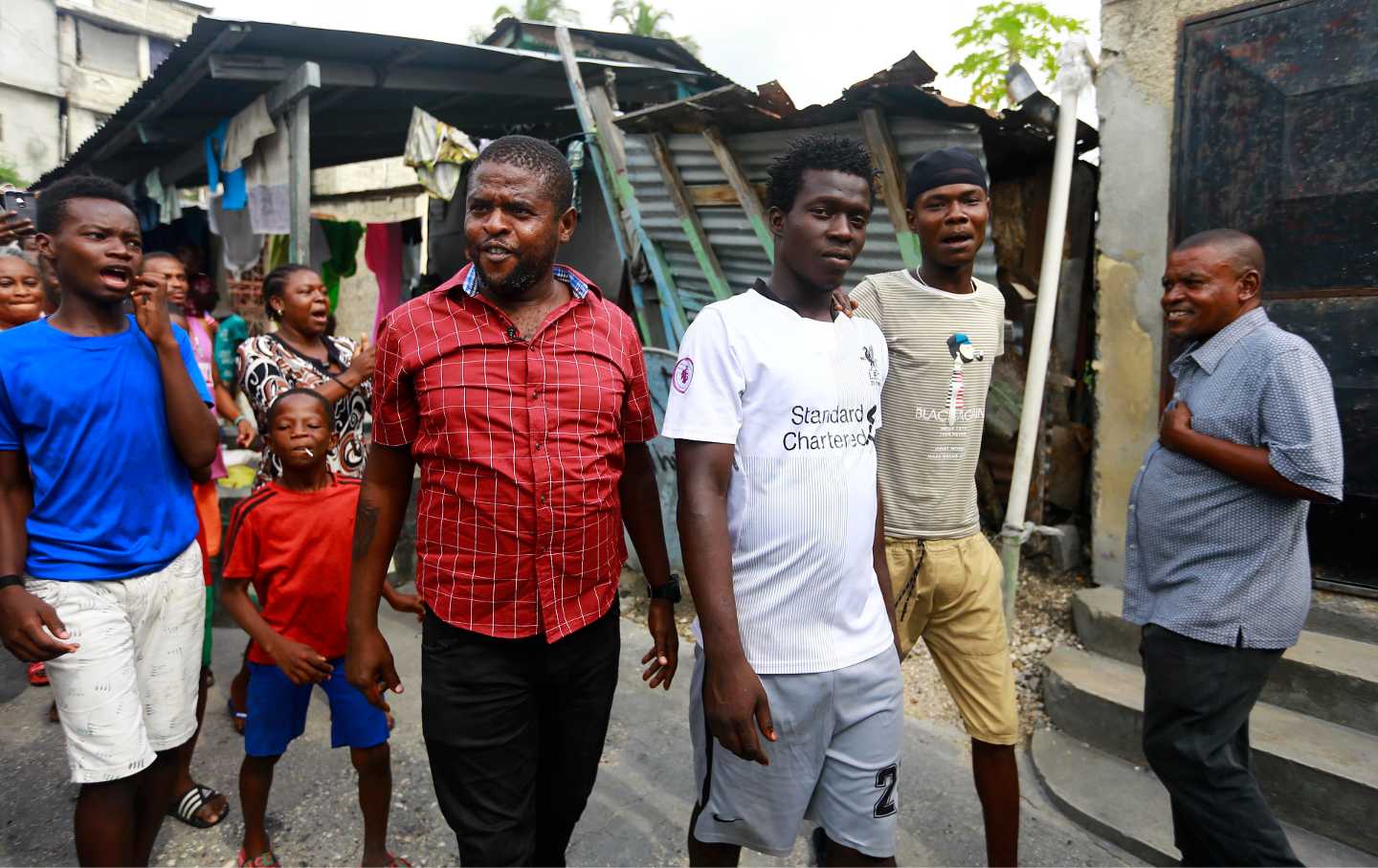This was a week like any other in contemporary Haiti—arguably somewhat worse. Early Tuesday morning, the respected and outspoken journalist Roberson Alphonse—who writes for Le Nouvelliste, a daily newspaper in Port-au-Prince, and also works for Radio Majik9—was fired on as he arrived at the radio station. He barely escaped with his life. At least five journalists have been killed since January; no one has been arrested or prosecuted in those killings. While Alphonse was under attack in the Delmas section of the capital, not far away in the craftsmen’s Village de Noailles, at Croix-des-Bouquets, two gangs continued their war over territory, shooting indiscriminately, burning houses and places of worship, and destroying a historic artists’ colony where characteristic Haitian cut-metal artworks are made for export all over the world; so far 15 people have been killed and at least 200 displaced there. No police presence has been detected as the assault continues.
This is a crisis moment for Haiti, and not only because of the spiking gang violence—much of it supported at various times by a smattering of powerful business and political interests—which is destroying the country’s ability to function and to continue as an ongoing community and culture. Haiti’s ruler, de facto Prime Minister Ariel Henry, effectively selected for the job by the Biden administration after the assassination of Haiti’s president Jovenel Moise in July, 2021, requested earlier this month that the United Nations send a “specialized armed force” to Haiti to quell the violence. Already, limited military matériel, including some armored vehicles, has arrived in Port-au-Prince from Canada and the United States, and some suspect, given recent unprecedented (though not numerous) arrests and killings of gang members by the Haitian National Police, that outside law-enforcement specialists and advisers have also already been sent in.

